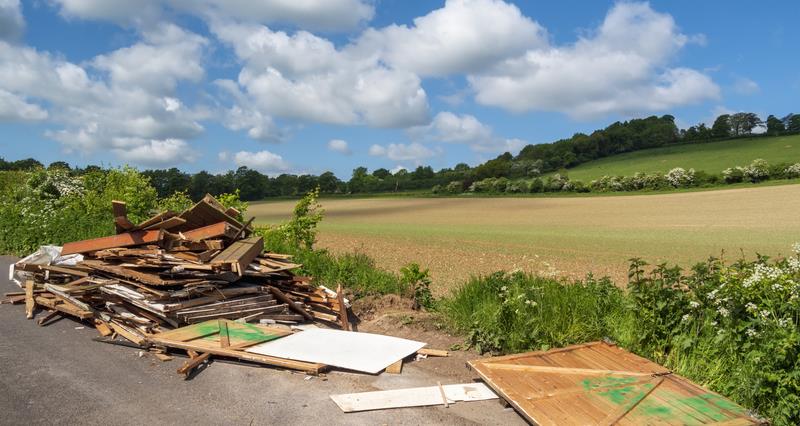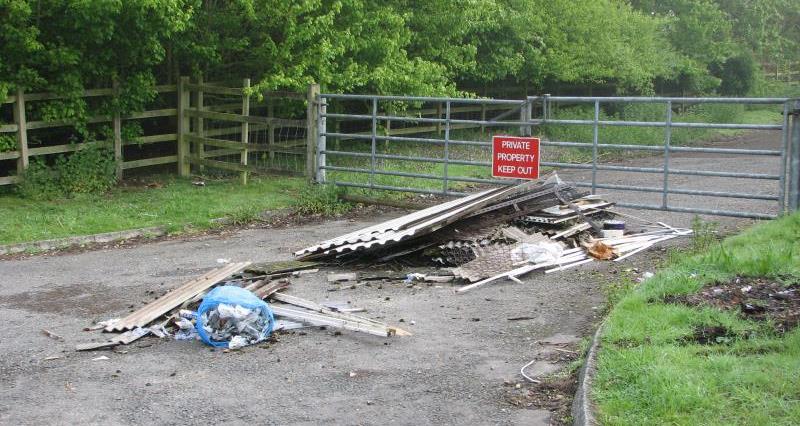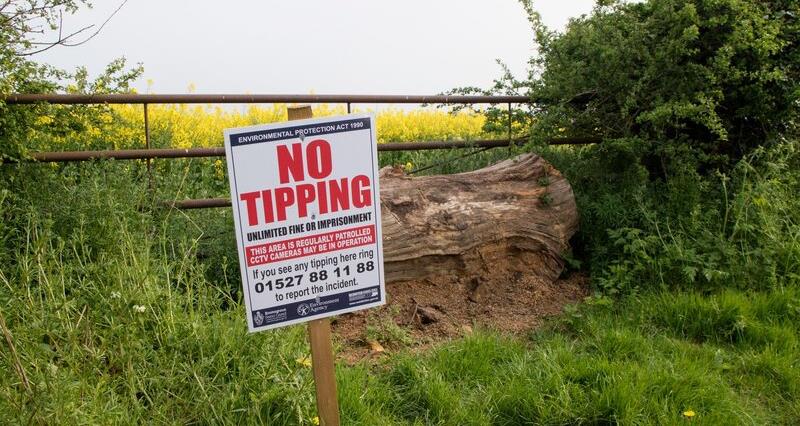We are urging all farmers and landowners to share their experiences of fly-tipping via the NFU’s incident form to show both local and national government the scale of the issue and strengthen our case for tougher action so we can continue to work with the Environment Agency, national and local government, to make tackling waste crime a priority.
The National Waste Crime survey, which was established by the EA (Environment Agency) and published July 2023, found that 52% of landowners/farmers or managers said that they are affected by waste crime.
Please report all incidents of fly-tipping to the relevant authority.
What should I do if fly-tipping occurs on my land?
The advice for fly tipping incidents is to contact your Local Authority, and not to report it to the Environment Agency, unless it is hazardous or of a significant volume. i.e. more than 20 tonnes (about 20 cubic metres) more than 5 cubic metres of fibrous asbestos or 75 litres of potentially hazardous waste in drums or containers.
Waste crime costs the economy in England over £1 billion a year. Only 25% of waste crime incidents are reported to the Environment Agency and without those reports, it’s hard for the agency to help landowners and identify where crimes have been committed and where action is required.
If you know or suspect illegal waste activity is taking place, report it anonymously to Crimestoppers: Give information | Crimestoppers or call 0800 555 111. The 24-hour incident hotline is also available on 0800 80 70 60.
The NFU and the National Fly-Tipping Prevention Group have worked together to provide clear advice on how best to deal with fly-tipping on your land. Read our advice page on fly-tipping.


